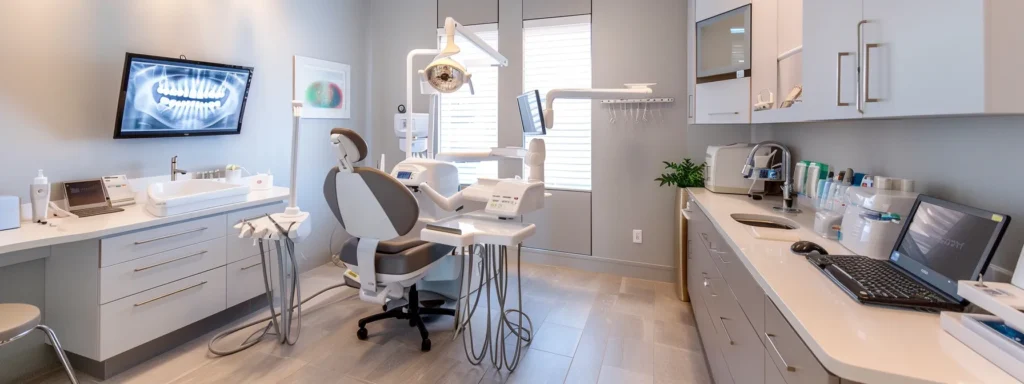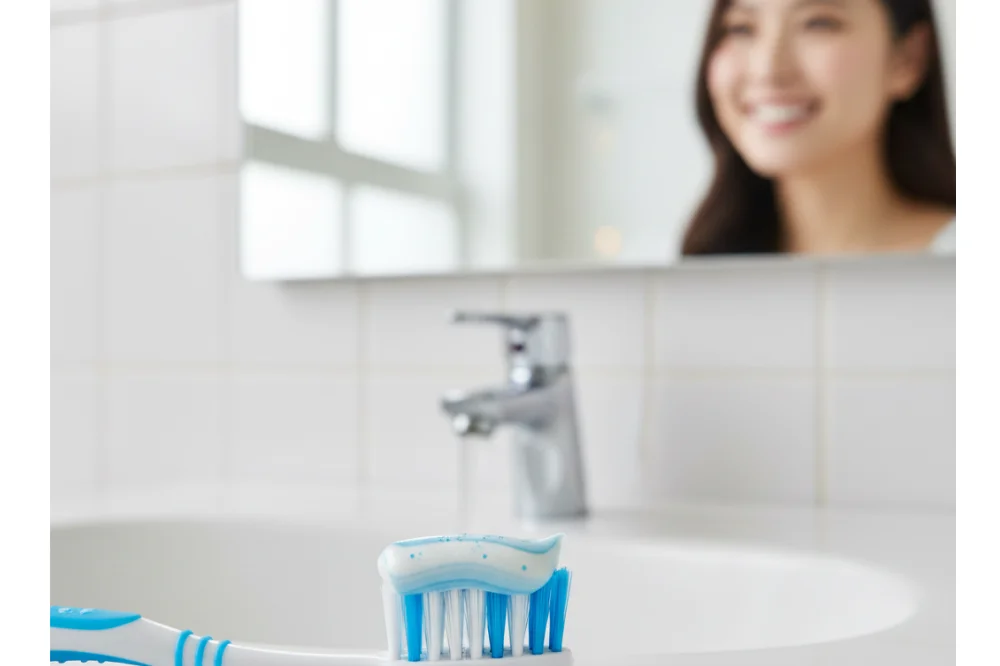The staff provided excellent care, were nice to talk to and made a very comfortable visit. They were able to provide fillings to several chipped teeth with short notice while visiting Phoenix from out of country. Both myself and my dentist back home agreed the quality of the fillings were well done, and the colour was a great match. Highly recommend for the great staff and professional work done.

Have you been wondering how to keep your partial dentures clean and comfortable every day? Taking care of partial dentures might seem complicated at first, but it’s actually pretty simple once you know the right steps! Proper denture care keeps your mouth healthy, prevents bad smells, and helps your dentures last much longer.
Dr. Jeremy Chan, a Phoenix native practicing in Tempe, brings advanced expertise in prosthodontics and restorative dentistry including partial denture care. With his specialized training, Dr. Chan helps patients develop effective daily routines that keep their partial dentures functioning perfectly for years.
Effective partial denture maintenance is crucial for preserving the dentures themselves and supporting your overall oral health. When you take proper care of your partial dentures every day, you prevent harmful bacteria from building up. This daily care routine protects both your remaining natural teeth and your gums from infections.
Why Proper Denture Cleaning Matters
Think of your partial dentures like a favorite piece of clothing that you want to keep looking and feeling great for years. Just like that outfit needs proper washing, your dentures need daily attention to stay clean, comfortable, and functional.
Bacterial buildup on partial dentures creates serious risks. When harmful bacteria accumulate on your dentures, they actively attack your remaining natural teeth and irritate your gum tissues constantly. Over time, this can lead to painful gum infections, tooth decay in your remaining natural teeth, and even bone loss in your jaw.
Critical Health Benefits of Proper Cleaning:
- Prevents harmful bacteria growth that causes infections
- Protects remaining natural teeth from decay
- Maintains healthy gums that support your dentures
- Eliminates bad breath and unpleasant tastes
- Keeps dentures fitting comfortably
- Extends the lifespan of your denture investment
Having the right tools makes proper denture care much easier. Specialized denture brushes, non-abrasive cleaners, and proper soaking solutions are specifically designed to clean dentures thoroughly without causing damage.
Creating Your Personal Denture Care Plan
Every person’s denture care needs are unique. Your specific denture materials, physical abilities, lifestyle, and oral health goals all influence what cleaning routine will work best.
Customization for different denture materials ensures that your cleaning routine protects rather than damages your partial dentures. While a soft denture brush works perfectly for cleaning acrylic denture bases, metal clasps might need different cleaning techniques. Porcelain teeth require gentler handling than acrylic teeth to prevent chips and cracks.
Physical abilities play important roles in determining which cleaning techniques and tools will work best. Some people have arthritis that makes gripping small brushes difficult, while others might have vision problems. Recognizing these factors allows for modifications like ergonomic cleaning tools.
Personal Care Plan Factors:
| Personal Factor | Care Considerations | Recommended Adaptations |
| Denture Materials | Acrylic vs metal components | Material-specific products |
| Physical Abilities | Dexterity, vision, strength | Ergonomic tools, simplified steps |
| Lifestyle Schedule | Work hours, travel | Portable cleaning kits |
| Oral Health Goals | Comfort, longevity | Customized cleaning intensity |
Lifestyle constraints also influence how your denture care routine can be structured. Busy work schedules might require streamlined cleaning routines. Frequent travelers need portable cleaning solutions.
Combining Cleaning Methods
Thorough denture maintenance requires using both mechanical cleaning and chemical cleaning methods together. Neither approach alone provides complete cleaning, but when combined properly, they create a powerful system.
Mechanical cleaning through brushing provides the physical action needed to remove plaque, food particles, and surface stains. This brushing action reaches into grooves and crevices where bacteria hide. Proper brushing technique using soft-bristled denture brushes removes debris without creating scratches.
Specialized denture brushes designed for cleaning partial dentures ensure effective cleaning without damage. These brushes have softer bristles than regular toothbrushes and feature shapes that reach around clasps and attachments more easily.
Essential Mechanical Cleaning Techniques:
- Use soft-bristled denture brushes
- Clean all surfaces including teeth, clasps, and tissue-contact areas
- Pay special attention to areas where food collects
- Rinse thoroughly after brushing
- Handle dentures carefully to prevent dropping
- Clean over a towel or basin of water
Chemical cleaning solutions complement mechanical brushing by dissolving residual matter and disinfecting areas that brushes cannot reach. Non-abrasive denture cleansers break down stubborn deposits and eliminate bacteria that cause odors.
The integration of mechanical and chemical cleaning methods provides comprehensive protection. When used together consistently, these methods maintain optimal cleanliness and help your dentures provide years of comfortable wear.
Regular soaking in appropriate denture cleaning solutions serves multiple functions. Proper soaking helps maintain the shape and flexibility of denture materials, preventing them from becoming brittle or warped. The moisture from soaking also prevents dentures from drying out.
Recognizing When Professional Help Is Needed
Understanding when your home care routine needs professional intervention can prevent minor problems from becoming major complications.
Persistent odors despite regular cleaning signal that bacteria may be present beyond what routine home cleaning can address. Professional cleaning techniques and specialized equipment can eliminate these stubborn bacterial colonies.
Warning Signs Requiring Professional Care:
- Persistent bad odors despite thorough cleaning
- Visible stains that won’t come off
- Rough or damaged areas on surfaces
- Changes in how dentures fit or feel
- Sore spots or irritation that doesn’t resolve
- Difficulty chewing or speaking
Physical discomfort such as irritation, sore spots, or persistent pain should always be evaluated by dental professionals promptly. These symptoms often indicate that dentures no longer fit properly. Only qualified dental professionals can accurately diagnose fit problems and make the precise adjustments needed.
Changes in your dentures’ appearance, such as cracks, chips, or worn areas, require professional evaluation to determine whether repair or replacement is necessary.

Daily Best Practices
Following proven best practices in denture maintenance creates habits that protect your investment while making daily care easier.
Avoiding harmful cleaning methods and products prevents damage. Hard-bristled brushes, abrasive toothpastes, and harsh chemicals can create microscopic scratches on denture surfaces that harbor bacteria.
Many people unknowingly use cleaning products that gradually damage their dentures. Regular toothpaste, household cleaners, and hot water can all cause problems ranging from surface scratching to material warping.
Harmful Practices to Avoid:
- Using hard-bristled toothbrushes that scratch surfaces
- Cleaning with abrasive toothpastes or household cleaners
- Soaking in hot water that can warp materials
- Using bleach or harsh chemicals not designed for dentures
- Bending or forcing clasps that can break
- Storing dentures dry, which causes brittleness
Proper denture storage when not wearing them maintains the shape and integrity of denture materials. Dentures should always be kept moist when not in your mouth. Approved soaking solutions maintain proper moisture and provide ongoing antimicrobial action.
Establishing seamless daily habits makes denture care feel natural rather than burdensome. When cleaning and storage routines become integrated into your normal daily activities, you’re much more likely to maintain them consistently.
Creating Healthy Habits in Arizona
Living in Arizona’s desert climate creates specific challenges for denture care. Understanding how our local environment affects both your oral health and denture materials helps you adapt your care routine.
Arizona’s dry climate can affect both your mouth’s natural moisture levels and the behavior of denture materials. Low humidity can cause your mouth to feel drier, which affects how comfortable your dentures feel. Staying well-hydrated becomes even more important for denture wearers in Arizona.
The intense Arizona sun and heat can also affect denture storage. Leaving dentures in hot cars or direct sunlight can cause warping or damage.
Arizona-Specific Care Considerations:
- Stay extra hydrated to maintain saliva production
- Protect dentures from extreme heat
- Consider more frequent professional cleanings due to dust
- Use moisturizing products for dry mouth if needed
- Keep cleaning supplies accessible during outdoor activities
Many Arizona residents enjoy active outdoor lifestyles that can present unique challenges for denture care. Planning ahead ensures that your dentures don’t interfere with your enjoyment of Arizona’s recreational opportunities.
Your Path to Denture Care Success
Successful denture care combines diligent personal daily habits with regular professional oversight. Dr. Jeremy Chan’s expertise in prosthodontics, combined with his understanding of Arizona’s unique needs, provides patients with comprehensive support.
Effective self-care forms the foundation of successful denture maintenance. Daily cleaning, proper storage, and careful handling prevent most common denture problems while ensuring that your dentures remain comfortable and functional.
Professional expertise supplements your self-care efforts through regular evaluations, professional cleaning services, and expert adjustments when needed. Regular dental visits ensure that your dentures continue to fit properly.
At our Tempe practice, we believe that every denture wearer deserves access to comprehensive care and education. Our approach combines patient education, personalized care planning, and ongoing professional support to ensure that your dentures enhance your quality of life.
Tempe Dentistry
480-897-2274
4427 S Rural Road, Suite 2
Tempe, AZ 85282
https://tempe.dental/
Frequently Asked Questions
How often should I clean my partial dentures?
For optimal oral health, clean your partial dentures daily after each meal when possible, but at minimum thoroughly clean them every evening before soaking overnight. This daily routine prevents plaque and bacteria from accumulating and protects both your remaining natural teeth and gum tissues.
Can I use regular toothpaste to clean my partial dentures?
Regular toothpaste is too abrasive for denture materials and can create microscopic scratches that harbor bacteria. Instead, use specialized denture cleaning products and soft-bristled denture brushes that are specifically designed to clean thoroughly without damaging the materials.
What should I do if my partial dentures start causing irritation or sore spots?
Schedule an appointment with your dentist promptly if your dentures cause persistent irritation, as this usually indicates fit problems that require professional adjustment. Don’t try to adjust dentures yourself or ignore discomfort, as poor-fitting dentures can damage your remaining natural teeth and gum tissues.
Dr. Chan’s Arizona dental license number is 10020, verified through the Arizona State Board of Dental Examiners and the NPI Registry. Every whitening treatment follows current American Dental Association (ADA) best practices to ensure safety, comfort, and effectiveness.
The information on this page is provided to help you understand general dental care and the preventive services we offer. It’s not a substitute for professional diagnosis or individualized treatment. Every patient’s needs are different, and your dentist will evaluate your oral health before recommending any specific care or procedure. (For personalized guidance, please schedule an appointment with a licensed dental professional.)
Related Articles
Dentures with Implants ~ Denture Costs and Financing ~ Denture Care and Maintenance ~ Dentures Types and Benefits ~ Affordable Dentures



